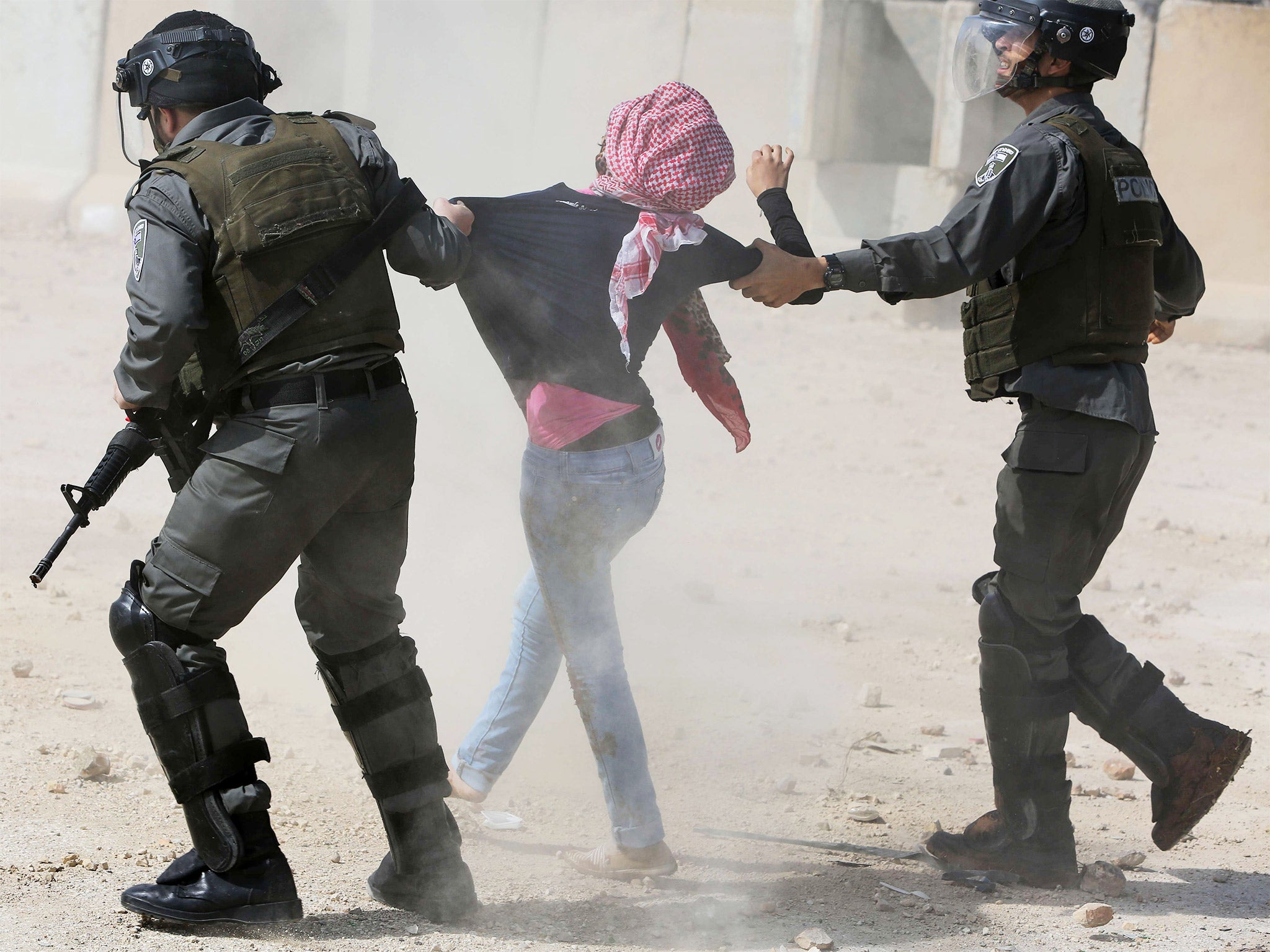Israel election: Palestinians fear whichever candidate wins, they lose ahead of next week's poll
You might have thought they would support Isaac Herzog, the man promising peace where Benjamin Netanyahu has brought only war. But there is little enthusiasm in Ramallah

Nasser Abdul Qader has little patience for questions about Israel’s elections next week. The 34-year-old’s spacious but chilly grocery store in the Palestinian Authority (PA) de facto capital of Ramallah is adorned with a picture of Palestinian founding father Yasser Arafat. “All are bad, there is no difference between them,” he says of candidates in Tuesday’s polls.
Israelis are asking themselves who to vote for in a contest between Prime Minister Benjamin Netanyahu and his Zionist Union challenger, Isaac Herzog. But Palestinians face a more daunting question: how to continue feeding their families and running their businesses in the face of Israeli economic sanctions.
Mr Abdul Qader said he did not care if peace negotiations resume, something the moderate Mr Herzog has said he would try to bring about. “These negotiations are all lies. The occupation will continue,” he said. In early January, in response to a Palestinian application to join the International Criminal Court (ICC), Mr Netanyahu’s government began withholding the monthly tax revenues it collects and is meant to transfer to the PA, which are crucial to its ability to pay its more than 150,000 employees.
They have been receiving partial salaries, and the cash shortage is tearing through the economy in Ramallah. Mr Qader says: “People are buying less. I give the customers credit, but the suppliers are telling me I must pay up. I’m borrowing money from my uncle so that I don’t close.”
Amjad Casas, CEO of a consulting and investment service, was similarly pessimistic: “We think the players in Israel these days are not interested in peace and Palestinian rights. I think Herzog is almost the same as Netanyahu.”
Palestinians by and large do not see salvation coming from the Israeli ballot box. This contrasts sharply with some of their political elite, rooting for a Herzog victory.
“This is a very important election,” says Ghassan Khatib, former PA minister of labour. “If Netanyahu is elected again, there is a big chance the next four years will see the end of the practical possibility of a two-state solution. But if Herzog wins, there might be another chance.”
In pictures: Anti-Israel demonstrations
Show all 9In Mr Khatib’s view, a Netanyahu victory will bring more settlement expansion, no negotiations and further weakening and possible collapse of the PA. The official PA position is that the election is an internal Israeli matter.
While Mr Herzog says he intends to try to “reignite” negotiations, he has criticised the Palestinians for applying to the ICC, and recently implied that they will have to remove the threat of Israelis being prosecuted in order for headway to be made.
Relations became yet more frayed last week when a Palestinian rammed his car into Israeli pedestrians in northern Jerusalem, wounding five people, including three policemen. Police said the assailant left his car and attempted to stab people before being shot and wounded. The attack came a day after the PLO Central Council recommended that the PA stop its security coordination.
Analysts say Palestinian President Mahmoud Abbas is unlikely to implement this until at least after the Israeli election. Israel views the coordination as important to thwarting Palestinian attacks against Israeli targets, but it has laid the PA open to charges that it collaborates with the occupation. In a sign that the decision on security coordination would not be immediately implemented, PA forces arrested over the weekend some 50 Hamas and Islamic Jihad activists with the aim of forestalling pre-election attacks, Israeli media reports said.
Mr Herzog has said he would freeze settlement construction in the West Bank outside major clusters of settlements, something Mr Netanyahu refused to do, but which falls far short of Palestinian demands for a total cessation.
An opinion poll today showed the Zionist Union, running slightly ahead of Mr Netanyahu’s Likud party and on target to win 24 seats in the 120-seat Knesset, to 21 seats for Likud. Other polls have shown it to be a neck-and-neck race.
According to a Palestinian official who requested anonymity, there are even some policy-makers who, believing negotiations with Herzog would prove futile and lull the international community into inaction, hope for a Netanyahu victory to spur foreign countries “to wake up and realise Israel does not want peace”.
Subscribe to Independent Premium to bookmark this article
Want to bookmark your favourite articles and stories to read or reference later? Start your Independent Premium subscription today.

Join our commenting forum
Join thought-provoking conversations, follow other Independent readers and see their replies